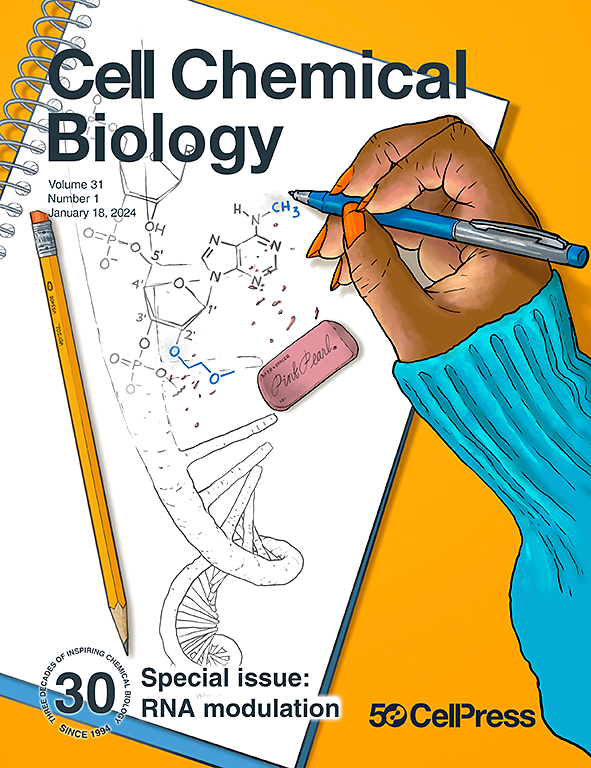CBLs downregulation foretells T cell ubiquitination leading to autoimmunity
IF 6.6
1区 生物学
Q1 BIOCHEMISTRY & MOLECULAR BIOLOGY
引用次数: 0
Abstract
In a study published in the July issue of Immunity, Li et al.1 demonstrate that expression of the E3 ubiquitin ligases CBL and CBL-B is downregulated in Tfh cells in SLE with Tfh cell expansion and autoimmunity. This leads to reduced ubiquitination of the T cell costimulator ICOS which regulates proteostasis of the Tfh cell transcription factor BCL6 via chaperone-mediated autophagy.
CBLs 下调预示着 T 细胞泛素化会导致自身免疫病
在发表于《免疫》(Immunity)七月刊的一项研究中,Li 等人1 证实,在伴有 Tfh 细胞扩增和自身免疫的系统性红斑狼疮患者的 Tfh 细胞中,E3 泛素连接酶 CBL 和 CBL-B 的表达下调。这导致T细胞成本刺激因子ICOS的泛素化减少,而ICOS通过伴侣介导的自噬调节Tfh细胞转录因子BCL6的蛋白稳态。
本文章由计算机程序翻译,如有差异,请以英文原文为准。
求助全文
约1分钟内获得全文
求助全文
来源期刊

Cell Chemical Biology
Biochemistry, Genetics and Molecular Biology-Molecular Medicine
CiteScore
14.70
自引率
2.30%
发文量
143
期刊介绍:
Cell Chemical Biology, a Cell Press journal established in 1994 as Chemistry & Biology, focuses on publishing crucial advances in chemical biology research with broad appeal to our diverse community, spanning basic scientists to clinicians. Pioneering investigations at the chemistry-biology interface, the journal fosters collaboration between these disciplines. We encourage submissions providing significant conceptual advancements of broad interest across chemical, biological, clinical, and related fields. Particularly sought are articles utilizing chemical tools to perturb, visualize, and measure biological systems, offering unique insights into molecular mechanisms, disease biology, and therapeutics.
 求助内容:
求助内容: 应助结果提醒方式:
应助结果提醒方式:


